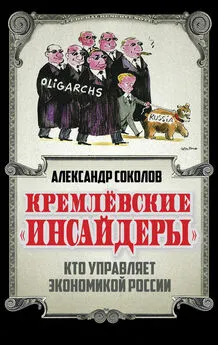Джордж Акерлоф - Spiritus Аnimalis, или Как человеческая психология управляет экономикой
- Название:Spiritus Аnimalis, или Как человеческая психология управляет экономикой
- Автор:
- Жанр:
- Издательство:ООО «Юнайтед Пресс»
- Год:2010
- Город:Москва
- ISBN:978-5-904522-33-9
- Рейтинг:
- Избранное:Добавить в избранное
-
Отзывы:
-
Ваша оценка:
Джордж Акерлоф - Spiritus Аnimalis, или Как человеческая психология управляет экономикой краткое содержание
В книге нобелевского лауреата по экономике Джорджа Акерлофа и профессора Йельского университета Роберта Шиллера рассказывается об особенностях человеческого поведения, которые влияют на макроэкономические процессы. Эти особенности до сих пор недостаточно учитывались теми, кто определяет экономическую политику государств, в результате чего периодически происходят более или менее серьезные финансовые сбои - депрессии, перегрев рынков и т.д. Хотя авторы описывают ряд сложных макроэкономических механизмов, в целом книга будет понятна самому широкому кругу читателей, потому что с этими свойствами человеческой психики каждый неоднократно сталкивался в повседневной жизни.
Spiritus Аnimalis, или Как человеческая психология управляет экономикой - читать онлайн бесплатно полную версию (весь текст целиком)
Интервал:
Закладка:
Но прежде всего эта книга посвящена тому, что решить наши экономические проблемы можно, только если мы будем в теории и на практике уделять должное внимание иррациональному началу.
Библиография
Aaron, Henry J., and Robert D. Reischauer. 1999. Setting National Priorities: The 2000 Election and Beyond. Washington, D.C.: Brookings Institution Press.
Agell, Jonas, and Per Lundborg. 2003. Survey Evidence on Wage Rigidity and Unemployment: Sweden in the 1990s. Scandinavian Journal of Economics 105(1): 15—29.
Akerlof, George A. 1982. Labor Contracts as Partial Gift Exchange. Quarterly Journal of Economics 97(4):543-69.
Akerlof, George A., and William T. Dickens. 2007. Unfinished Business in the Macroeconomics of Low Inflation: A Tribute to George and Bill by Bill and George. Brookings Papers on Macroeconomics 2:31—48.
Akerlof, George A., and Rachel E. Kranton. 2000. Economics and Identity. Quarterly Journal of Economics 115(3):715—53.
Akerlof, George A., and Rachel E. Kranton. 2002. Identity and Schooling: Some Lessons for the Economics of Education. Journal of Economic Literature 40(4): 1167-201.
Akerlof, George A., and Rachel E. Kranton. 2005. Identity and the Economics of Organizations. Journal of Economic Perspectives 19(1):9—32.
Akerlof, George A., and Rachel E. Kranton. 2008. Economics and Identity. Unpublished paper, University of California-Berkeley, and Duke University, июль.
Akerlof, George A., and Paul M. Romer. 1993. Looting: The Economic Underworld of Bankruptcy for Profit. Brookings Papers on Economic Activity 2:1-74. Akerlof, George A., and Janet L. Yellen. 1990. The Fair Wage-Effort Hypothesis and Unemployment. Quarterly Journal of Economics 105(2):255-83.
Akerlof, George A., Andrew K. Rose, and Janet L. Yellen. 1988. Job Switching and Job Satisfaction in the U.S. Labor Market. Brookings Papers on Economic Activity 2 : 495 - 582.
Akerlof, George A., William T. Dickens, and George L. Perry. 1996. The Macroeconomics of Low Inflation. Brookings Papers on Economic Activity 1:1-59.
Akerlof, George A., William T. Dickens, and George L. Perry. 2000. Near-Rational Wage and Price Setting and the Long-Run Phillips Curve. Brookings Papers on Economic Activity 1:1-44.
Akerlof, Robert J. 2008. A Theory of Social Interactions. Unpublished paper, Department of Economics, Harvard University.
Aldrich Banking System. 1911. Washington Post, 18 февраля, стр. 6.
Alesina, Alberto, Rafael di Telia, and Robert McCulloch. 2001. Inequality and Happiness: Are Europeans and Americans Different? National Bureau of Economic Research Working Paper 8198, апрель.
Alexander, Robert. 2003. A History of Organized Labor in Argentina. Westport, Conn.: Praeger.
Allen, Franklin, Stephen Morris, and Hyun Song Shin. 2002. Beauty Contests, Bubbles, and Iterated Expectations in Asset Markets. Неопубл., Yale University, апрель.
Altonji, Joseph G., and Paul J. Devereux. 1999. The Extent and Consequences of Downward Nominal Wage Rigidity. National Bureau of Economic Research Working Paper 7236, июль.
Anderson, Elijah. 1990. Streetwise: Race, Class, and Change in an Urban Community. Chicago: University of Chicago Press.
Ando, Albert, and Franco Modigliani. 1963. The Life-Cycle Theory of Saving: Aggregate Implications and Tests. American Economic Review 53(1 ):55—84.
Andrews, Edmund L. 2008. Fed Acts to Rescue Financial Markets. New York Times, 17 марта.
Angeletos, George-Marios, David I. Laibson, Andrea Repetto, Jeremy Tobacman, and Stephen Weinberg. 2001. The Hyperbolic Consumption Model: Calibration, Simulation, and Empirical Evaluation. Journal of Economic Perspectives 15(3):47-68.
Applaud Idea of Lowering City Salaries. 1932. Hartford Courant, 19 февраля, crp. 8.
Arkes, H., L. Herren, and A. Isen. 1988. The Role of Potential Loss in the Influence of
Affect on Risk-Taking Behavior. Organizational Behavior and Human Decision Processes 66:228-36.
Attitude of Waiting. 1902. Washington Post, December 21, стр. 22. Bailey, Norman J. 1975. The Mathematical Theory of Infectious Diseases and Its Applications. London: Griffin.
Baker, Malcolm, Jeremy C. Stein, and Jeffrey Wurgler. 2002. When Does the Market Matter? Stock Prices and the Investment of Equity-Dependent Firms. National Bureau of Economic Research Working Paper 8750, январь.
Baker, Malcolm, Stefan Nagel, and Jeffrey Wurgler. 2006. The Effects of Dividends on Consumption. National Bureau of Economic Research Working Paper 12288, июнь.
Barberis, Nicholas, and Richard Thaler. 2003. A Survey of Behavioral Finance. // George Constantinides, Milton Harris, and Ren Stulz, eds., Handbook of the Economics of Finance. New York: Elsevier Science, стр. 1053-1128.
Barenstein, Matias Felix. 2002. Credit Cards and Consumption: An Urge to Splurge? Не- опубл., University of California-Berkeley.
Barrett, Wayne. 2008. Andrew Cuomo and Fannie and Freddie. Village Voice, 5 августа.
Barro, Robert J. 1979. On the Determination of the Public Debt. Journal of Political Economy 87(5):940—971.
Barsky, Robert В., and Eric R. Sims. 2006. Information Shocks, Animal Spirits, and the Meaning of Innovations in Consumer Confidence. Неопубл., University of Michigan, 30 октября.
Bauer, Thomas, Holger Bonin, and Uwe Sunde. 2003. Real and Nominal Wage Rigidities and the Rate of Inflation: Evidence from German Microdata. Institute for the Study of Labor Discussion Paper 959.
Becker, Gary S. 1968. Crime and Punishment: An Economic Approach. Journal of Political Economy 76:169-217.
Benabou, Roland. 2008. Groupthink: Collective Delusions in Organizations and Markets. Unpublished paper, Princeton University.
Benabou, Roland, and Jean Tirole. 2000. Self-Confidence and Social Interactions. National Bureau of Economic Research Working Paper 7585.
Benoit, Bernard, Ben Hall, Krishna Guha, Francesco Guerrera, and Henry Sender. 2008. US Prepares $250bn Banks Push; Global Rebound; S&P 500 Soars 11.6 % as Markets Cheer Europe's $2,546bn Move. Financial Times, 14 октября, стр. 1.
Berg, Lennart, and Reinhold Bergstrem. 1996. Consumer Confidence and Consumption in Sweden. Неопубл., Department of Economics, Uppsala University.
Bernanke, Ben S. 2008a. Developments in the Financial Markets. Testimony before the Committee on Banking, Housing, and Urban Affairs, U.S. Senate. 3 апреля. http://www. federalreserve.gov/newsevents/testimony/bernanke2+0080403a.htm.
Bernanke, Ben S. 2008b. Reducing Systemic Risk. Speech at the Federal Reserve Bank of Kansas City Economic Symposium, Maintaining Stability in a Changing Financial System, Jackson Hole, Wyoming, August 22. http://www.federalreserve.gov/newsevents/speech/bernanke20080822a.htm.
Bernanke, Ben S., and Alan Blinder. 1988. Credit, Money, and Aggregate Demand. American Economic Review 78(2):435-439.
Bernanke, Ben S., and Alan Blinder. 1992. The Federal Funds Rate and the Channels of Monetary Transmission. American Economic Review 82(4):901—921.
Bernanke, Ben S., Thomas Laubach, Frederic Mishkin, and Adam Posen. 2001. Inflation Targeting: Lessons from the International Experience. Princeton, N.J.: Princeton University Press.
Bernanke, Ben S., Jean Boivin, and Piotor Eliasz. 2005. Measuring the Effects of Monetary Policy: A Factor-Augmented Vector Autoregressive (FAVAR) Approach. Quarterly Journal of Economics 120(1):387^22.
Bernheim, B. Douglas. 1995. Do Households Appreciate Their Financial Vulnerabilities? An Analysis of Actions, Perceptions, and Public Policy. // Tax Policy for Economic Growth in the 1990s. Washington, D.C.: American Council for Capital Formation, стр. 1-30.
Bewley, Truman. 1999. Why Wages Don't Fall during a Recession. Cambridge, Mass.: Harvard University Press.
Bewley, Truman. 2002. Knightian Decision Theory. Part I. Decisions in Economics and Finance 25(2):79-l 10.
Billett, Matthew Т., and Yiming Qian. 2005. Are Overconfident Managers Born or Made? Evidence of Self-Attribution Bias from Frequent Acquirers. Неопубл., University of Iowa.
Blanchard, Olivier J. 1993. Consumption and the Recession of 1990-1991. American Economic Review 83(2):270-74.
Blanchard, Olivier, and Nobuhiro Kiyotaki. 1987. Monopolistic Competition and the Effects of Aggregate Demand. American Economic Review 77(4): 647-666.
Blanchard, Olivier, and Lawrence Summers. 1987. Hysteresis in Unemployment. European Economic Review 31(l/2):288-295.
Blanchard, Olivier, Changyong Rhee, and Lawrence H. Summers. 1993. The Stock Market, Profit, and Investment. Quarterly Journal of Economics 108(1): 115-136.
Blau, Peter Michael. 1963. The Dynamics of Bureaucracy; A Study of Interpersonal Relations in Two Government Agencies. Chicago: University of Chicago Press.
Blinder, Alan S., and Don H. Choi. 1990. A Shred of Evidence on Theories of Wage Stickiness. Quarterly Journal of Economics 105(4): 1003—1015.
Blinder, Alan S., Angus Deaton, Robert E. Hall, and R. Glenn Hubbard. 1985. The Time Series Consumption Function Revisited. Brookings Papers on Economic Activity 2 : 465 - 511.
Bond, Stephen R., and Jason G. Cummins. 2000. The Stock Market and Investment in the New Economy: Some Tangible Facts and Intangible Fictions. Brookings Papers on Economic Activity 1:61-108.
Borio, Claudio. 2003. Towards a Macroprudential Framework for Financial Regulation. BIS Working Paper 128, Bank for International Settlements, февраль.
Bowles, Samuel. 1985. The Production Process in a Competitive Economy: Walrasian, Neo-Hobbesian, and Marxian Models. American Economic Review 75(l):16-36.
Bracha, Anat, and Donald Brown. 2007. Affective Decision Making: A Behavioral Theory of Choice. Cowles Foundation Discussion Paper 1633, ноябрь.
Brainard, William C., and George L. Perry. 2000. Making Policy in a Changing World. // William Brainard and George Perry, eds., Economic Events, Ideas, and Policies: The 1960s and After. Washington, D.C.: Brookings Institution Press, стр. 43-82.
Brainard, William C., and James Tobin. 1968. Pitfalls in Financial Model Building. American Economic Review 58(2):99-122.
Brock, William A., and Steven N. Durlauf. 2003. Multinomial Choice and Social Interactions. Unpublished paper, University of Wisconsin-Madison, 27 января.
Brown, Lucia. 1952. Individualistic Interiors Mark Dozen Exhibit Homes. Washington Post, 7 сентября, стр. НЗ.
Brown, Roger. 1986. Social Psychology, 2nd ed. New York: Free Press.
Brown, Stephen, William Goetzmann, Bing Liang, and Christopher Schwarz. 2007. Mandatory Disclosure and Operational Risk: Evidence from Hedge Fund Registration. Неопубл., New York University.
Brunnermeier, Markus K. 2009. Deciphering the 2 0 0 7 - 8 Liquidity and Credit Crunch. Journal of Economic Perspectives, готовится к публикации.
Brunnermeier, Markus К., and Christian Julliard. 2006. Money Illusion and Housing Frenzies. National Bureau of Economic Research Working Paper 12810, декабрь. Buckley, F. H., and Margaret F. Brinig. 1998. The Bankruptcy Puzzle. Journal of Legal Studies 27(1): 187—207.
Burton, Robert. 1632. The Anatomy of Melancholy. Oxford: Henry Cripps. Русскоязычное издание: Бертон P. Анатомия меланхолии. М: Прогресс-традиция, 2005
Caballero, Ricardo, and Arvind Krishnamurthy. 2006. Flight to Quality and Collective Risk Management. Неопубл., Massachusetts Institute of Technology.
Читать дальшеИнтервал:
Закладка:










